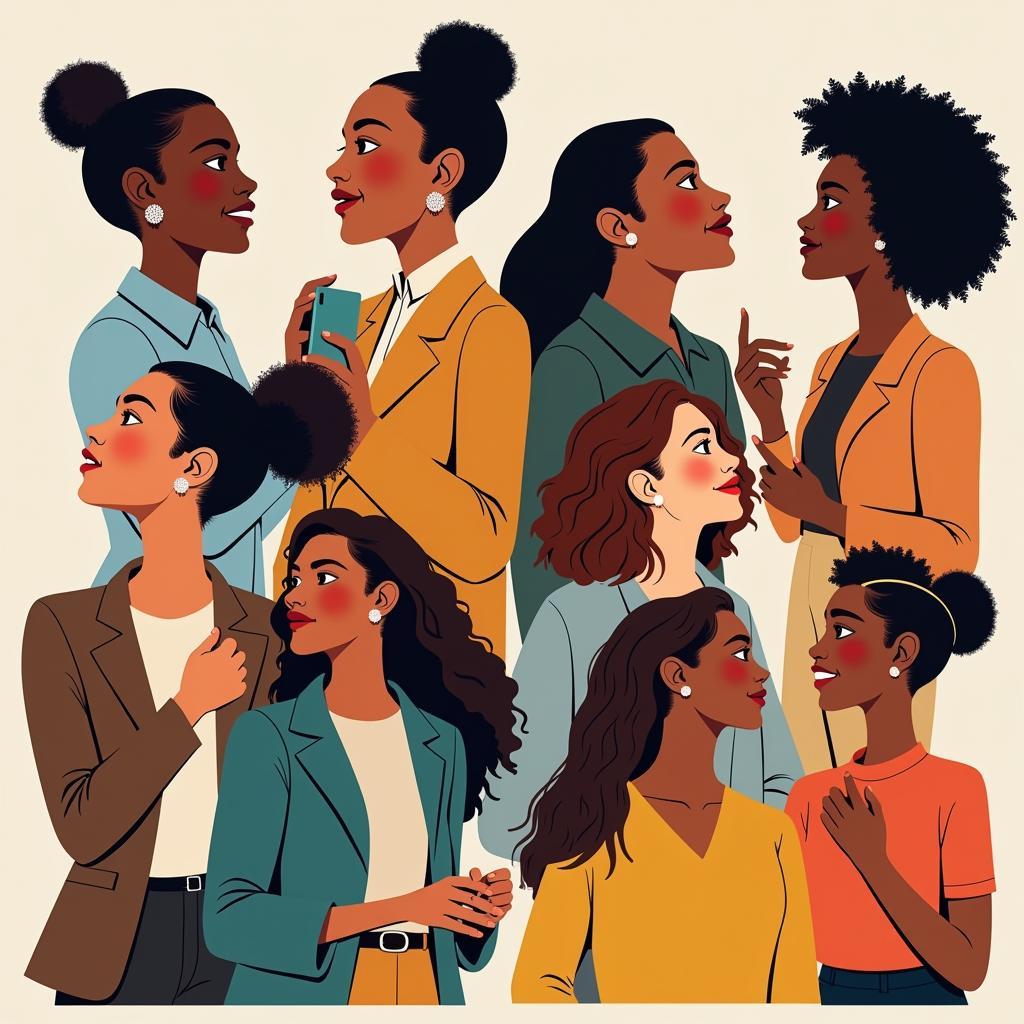Society’s expectations of females have been a subject of debate and evolution for centuries. From traditional roles to modern-day pressures, women navigate a complex landscape of often conflicting expectations. This article explores the various societal pressures women face, their impact, and how we can move towards a more equitable future.
The Evolution of Society’s Expectations
Historically, societal expectations of females were largely confined to domestic spheres. Women were expected to be homemakers, caregivers, and prioritize family over personal ambitions. While these roles remain important for many, the 21st century has seen a significant shift. Women are now actively participating in the workforce, pursuing higher education, and breaking barriers in traditionally male-dominated fields. However, this progress doesn’t negate the lingering influence of traditional expectations. Many women still grapple with the pressure to balance career aspirations with family responsibilities, often feeling torn between societal ideals and personal desires.
The Pressure to Conform: Appearance, Behavior, and Roles
Society often dictates specific standards for women’s appearance, behavior, and roles. The pressure to conform to these ideals can be immense, leading to body image issues, self-esteem problems, and a constant feeling of inadequacy. From unrealistic beauty standards perpetuated by media to expectations surrounding emotional expression and career choices, women face a barrage of messages about how they “should” be. This pressure can manifest in various ways, from subtle judgments to overt discrimination, impacting women’s mental and emotional well-being.
One aspect of this pressure is the expectation that women be nurturing and emotionally expressive, while simultaneously being composed and resilient. This can create a double bind, leaving women feeling judged regardless of how they choose to express themselves. Similarly, expectations surrounding career choices can limit women’s opportunities and reinforce gender stereotypes. While progress has been made, women are still often steered towards traditionally “feminine” professions, facing skepticism and bias when venturing into fields like STEM or leadership positions.
Challenging the Status Quo: Redefining Expectations
Challenging ingrained societal expectations is a crucial step towards achieving gender equality. This requires a multi-pronged approach, involving individual actions, societal shifts, and institutional changes. Women can actively challenge these expectations by embracing their individuality, defying stereotypes, and supporting each other. Openly discussing the pressures faced and sharing experiences can create a sense of solidarity and empower women to resist conforming to unrealistic ideals.
Moreover, societal change requires a collective effort to dismantle harmful stereotypes and promote more inclusive narratives. Educating boys and girls about gender equality from a young age, challenging discriminatory practices in the workplace, and promoting positive female role models in various fields are vital steps towards creating a more equitable society.
The Impact on Mental Health and Well-being
The constant pressure to meet societal expectations can take a significant toll on women’s mental and emotional well-being. The internalized pressure to be “perfect” can lead to anxiety, depression, and other mental health challenges. It’s crucial to recognize the impact of these expectations and prioritize self-care, seek support when needed, and cultivate a positive self-image.
Moving Towards a More Equitable Future
Creating a more equitable future requires a fundamental shift in how we perceive and define success for women. We must move beyond narrow definitions of femininity and embrace diversity in all its forms. This includes recognizing and valuing the contributions of women in all spheres of life, whether it’s in the workplace, at home, or in the community. Promoting gender equality benefits not only individual women but society as a whole.
One crucial aspect of this shift is recognizing the intersectionality of societal expectations. Women from different cultural backgrounds, races, and socioeconomic statuses face unique challenges and pressures. Addressing these intersectional experiences is essential to creating a truly inclusive and equitable society.
Conclusion
Society’s expectations of females have undoubtedly evolved, but the journey towards true equality is ongoing. By acknowledging the complexities of these expectations, challenging harmful stereotypes, and promoting positive change, we can create a future where women are empowered to define their own paths and reach their full potential. Let’s continue to work towards a society where every individual, regardless of gender, is valued and respected for who they are.
 Diverse Women Achieving Success
Diverse Women Achieving Success
FAQ
- How do societal expectations impact women’s career choices?
- What are some common stereotypes about women in the workplace?
- How can we challenge unrealistic beauty standards for women?
- What are some ways to promote gender equality in education?
- How can men contribute to challenging societal expectations of women?
- What are the long-term effects of societal pressure on women’s mental health?
- How can we create a more inclusive and supportive environment for women?
Situations where these questions arise:
- Discussions about gender roles in society.
- Conversations about women’s experiences in the workplace.
- Debates about media representation of women.
- Efforts to promote gender equality in various settings.
Related Articles:
- Empowering Women in Leadership
- Breaking Gender Stereotypes in Education
- The Impact of Social Media on Body Image
Need further assistance? Contact us 24/7: Phone: 02043854663, Email: [email protected], or visit us at Zone 34, Bac Giang, 260000, Vietnam.